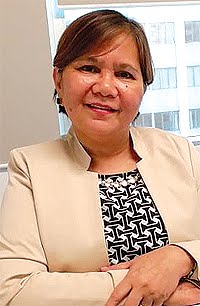Filipinas who have been working in Hong Kong for a long time seem to be most vulnerable to cancer, and this phenomenon is baffling officers of the Overseas Workers Welfare Administration.
Welfare Attaché Virsie Tamayao told The SUN that many of the medical cases reported to her office recently involved cancer patients. But she could not provide exact figures due to a lack of statistics.
At the end of June, two OWWA officers escorted home a female worker who was suffering from a type of cancer. At about the same time, a former domestic worker who had overstayed here for 10 years surrendered and was taken to hospital in Kowloon with an advanced-stage cancer.
Most recently, longtime Mission volunteer Violy Macatol chose to go home, accompanied by an OWWA staff, after being found to be seriously ill with a rare type of blood cancer. And before her, political activist Lily Jimenez who had worked in Hong Kong for more than 20 years, flew home to her native Albay province, along with a concerned friend, after being diagnosed with late-stage bone cancer.
Tamayao, who assumed her post in late May, said she had been assigned to other places, such as Abu Dhabi and South Korea, but it is only here in Hong Kong where she has seen cancer being prevalent among OFWs.
Tamayao said this had prompted her to wonder why this is so.
“Notable is, most of those afflicted have been working here for quite some time,” Tamayao said. This has led her to ask the patients about their lifestyle – what kind of food the workers eat here.
“About 80% of illness comes from our food and also lifestyle, stress, stressful work, the environment, even the family, if the worker doesn’t get support system from the family,” Tamayao said.
The phenomenon has prompted her to consider compiling a database of illnesses afflicting OFWs, including cancer.
She said OWWA is always there to give support to ailing OFWs, starting with the psycho-social aspects.
“We give all kinds of support other than the interventions, like bringing them to the airport, giving them escorts up to the airport in Manila, and requesting the head office if they need an OWWA ambulance to bring them to the hospital in their home place, and contacting their families,” Tamayao said.
OWWA also contacts other agencies that can help a sick OFW set up a livelihood activity so she can reintegrate back home with some ease.















